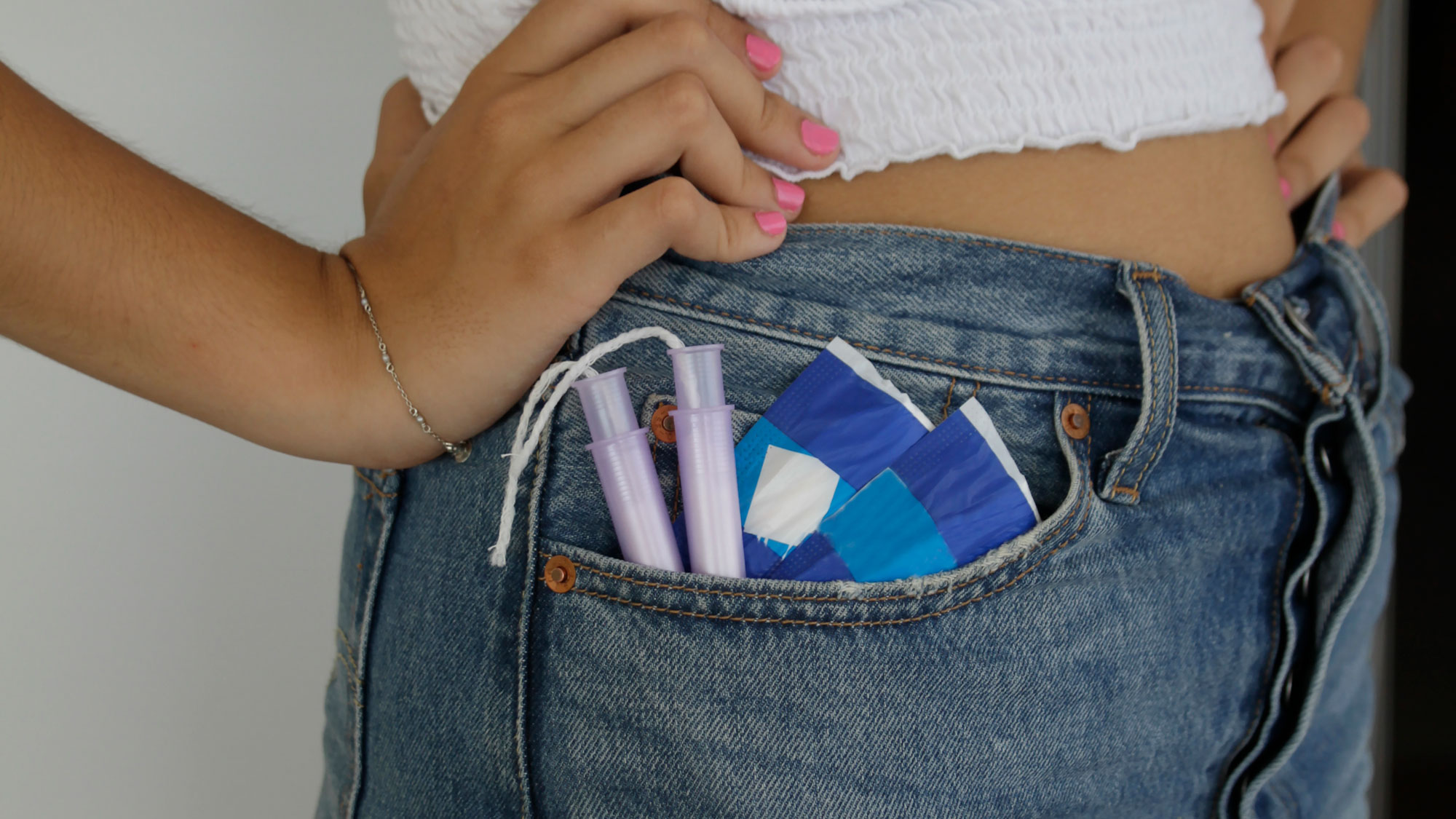Tampon tax is finally being scrapped in the UK
91 years later and progress has been pledged.

91 years later and progress has been pledged.
Just in: the British government has shared that the 5% rate of VAT on sanitary products known as the 'tampon tax' will be scrapped when next week's budget is announced.
The chancellor of the Exchequer, Rishi Sunak, is set to make a formal statement about the change come Wednesday, which pledges to ensure the tax is non-existent from January 2021, a date coinciding with the end of the transition period whereby the UK leaves the EU.
At current, EU legislation means the rate legally can't fall below 5% while the UK remains a member state of the EU.
Yet, come January 1 2021, the UK will stand independently of the EU, meaning the law that classes sanitary products as 'luxury non-essentials' and essential for a goods and services tax is no longer applicable.
Plus, the Conservatives pledged in their manifesto last year that the much-debated VAT rate would be removed. It is thought that legislation has already been through Parliament to make sure the change is actioned.
Estimate figures from the Treasury have predicted that scrapping the tax will save the average woman £40 over her lifetime, as she'll be saving 7p on every pack of 20 tampons she buys and 5p on every pack 12 pads.
Marie Claire Newsletter
Celebrity news, beauty, fashion advice, and fascinating features, delivered straight to your inbox!
The announcement is a triumph for the thousands of campaigners (including American model and actress Amber Rose) who, across the UK, have been fighting for the law and this era of period poverty to be put to an end for years. Progress is being made, as the announcement comes just months after free tampons and sanitary products were rolled-out in all English state secondary schools and colleges.
In the UK, Plan International figures show that as many as one in 10 girls cannot afford to purchase essential menstrual products, and one in seven have found it difficult to afford them.
Some stores and supermarkets had already taken action to make changes themselves, including the likes of Tesco, the Co-op and Waitrose. They've deducted the tax on the sanitary items they offer in store themselves and, rather than the customer paying the tax, the store absorbs the cost of tax for them.
What do you think? Positive progress or necessary change made too slowly?

Ally Head is Marie Claire UK's Senior Health and Sustainability Editor, nine-time marathoner, and Boston Qualifying runner. Day-to-day, she heads up all strategy for her pillars, working across commissioning, features, and e-commerce, reporting on the latest health updates, writing the must-read wellness content, and rounding up the genuinely sustainable and squat-proof gym leggings worth *adding to basket*. She also spearheads the brand's annual Women in Sport covers, interviewing and shooting the likes of Mary Earps, Millie Bright, Daryll Neita, and Lavaia Nielsen. She's won a BSME for her sustainability work, regularly hosts panels and presents for events like the Sustainability Awards, and is a stickler for a strong stat, too, seeing over nine million total impressions on the January 2023 Wellness Issue she oversaw. Follow Ally on Instagram for more or get in touch.
-
 Feeling inspired by the London Marathon? 10 science-backed pieces of running advice for beginners
Feeling inspired by the London Marathon? 10 science-backed pieces of running advice for beginners"Remember, running is for everyone - you included."
By Rebecca Shepherd
-
 After the perfect wedding mascara? I've tested over a hundred formulas—these are the ones I'd recommend
After the perfect wedding mascara? I've tested over a hundred formulas—these are the ones I'd recommendAll the length, volume and lift you could ask for
By Denise Primbet
-
 Anatomy Of A Wardrobe: TV presenter AJ Odudu is carving out her own lane, one show-stopping look at a time
Anatomy Of A Wardrobe: TV presenter AJ Odudu is carving out her own lane, one show-stopping look at a timeWatch as we take an exclusive look inside AJ's wardrobe
By Lily Russo-Bah